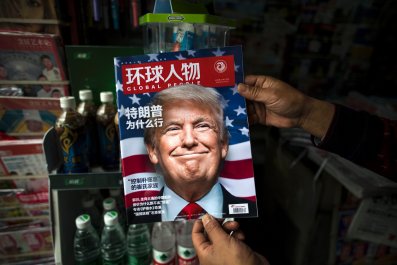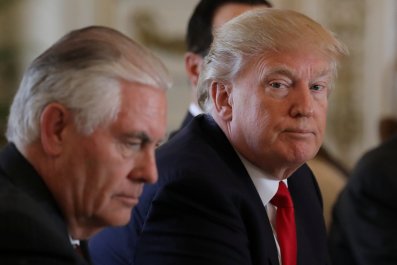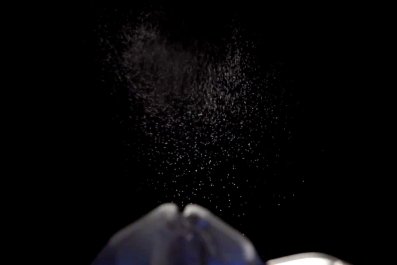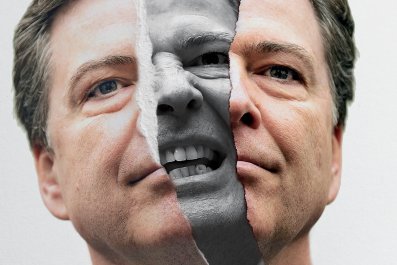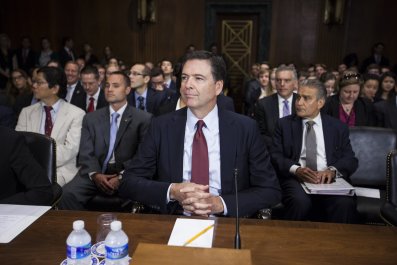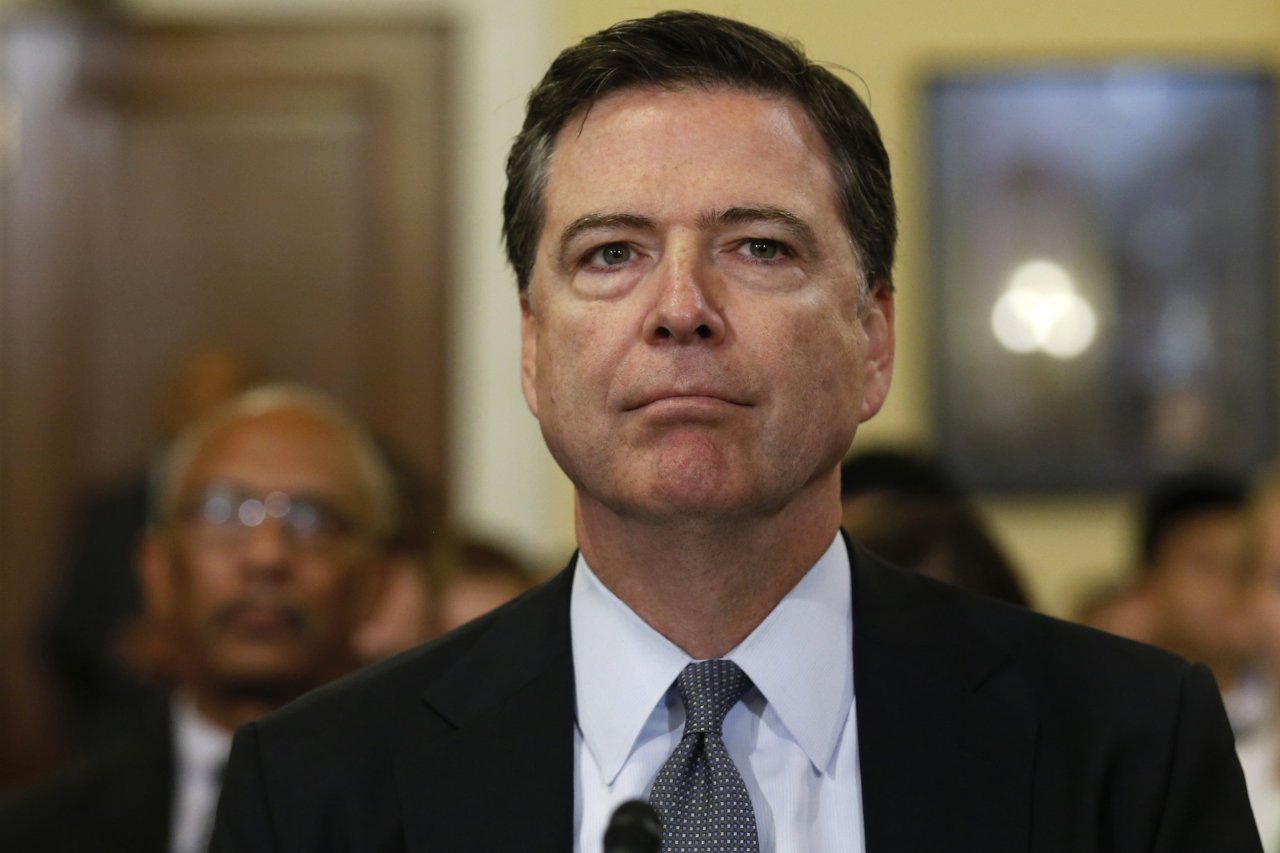
Last fall, James Comey stood accused of throwing a presidential election. And he allegedly did it with just a letter.
On October 28, less than two weeks before American voters went to the polls, the FBI director wrote to Congress, saying the bureau had discovered new emails related to its long-running investigation into Hillary Clinton's use of a personal email server when she was secretary of state. In July, he had declared there was no evidence of any illegal activity by the Democratic presidential candidate, so this announcement ripped open a wound that had nearly healed over. Both the right and the left screeched in outrage, calling for either Clinton or Comey to be strung up. In The Washington Post, two former U.S. deputy attorney generals, Jamie Gorelick and Larry Thompson, wrote, "We now have real-time, raw-take transparency taken to its illogical limit, a kind of reality-TV of federal criminal investigation." They called Comey's actions "antithetical to the interests of justice, putting a thumb on the scale of this election and damaging our democracy."
Democrats were already sputtering with rage that Comey had gone all schoolmarm on Clinton back in July, questioning her judgment and trustworthiness. "He tried to portray himself as above the fray, someone who is not attuned to politics, someone who does not even reside in the same political universe as everyone else, that he's holier than thou," says a former Obama administration official. (Several people who spoke to Newsweek about Comey asked to remain anonymous so they could freely discuss controversial and sometimes confidential matters.)
"That may be true, but he was also too attuned to his own self-image," the official says, claiming that the director threw dirt on Clinton to retain the trust of his Fox News–watching agents. "In the end, it was a punch to the gut, and she didn't come off vindicated."
[This article is part two in a two-part series. Click here to read part one.]
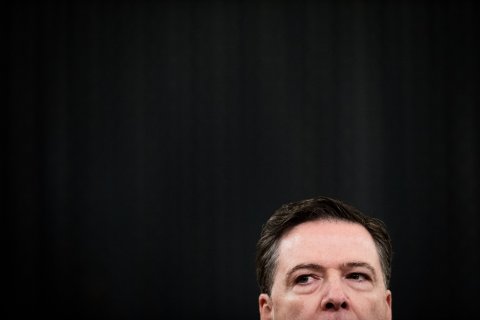
After Comey's October surprise, Clinton's popular-vote lead over Donald Trump in the polls dropped from 6 points to 3, according to FiveThirtyEight.
Republicans grabbed some spiked bats and joined the Comey beatdown. "Without additional context, your disclosure is not fair to Congress, the American people, or Secretary Clinton," U.S. Senator Chuck Grassley of Iowa wrote in a letter to Comey on October 31. "Look, I think Comey should have said prosecute her back in July. But what he just did 11 days b4 the election is wrong & unfair to Hillary," tweeted Joe Walsh, a conservative talk show radio host and former Illinois congressman. Republican former U.S. Attorney General Alberto Gonzales told CNN that Comey had made an "error in judgment," adding: "You don't comment on investigations because commenting on the investigation may jeopardize the investigation."
Comey seemed to have pulled off the rarest of feats in politics: He pissed off everybody. Former FBI Assistant Director James Kallstrom said on Fox News that Comey's decision was "nonsensical," adding: "It's not Comey's right to sully that reputation [of the FBI]."
"The way the letter was written was incredibly vague and careless," a Democratic operative tells Newsweek. "That was a massive hand grenade thrown into the middle of an election that was 11 days away." In addition to energizing Trump supporters, Comey's decision to publicize a tiny advance in a "completed" investigation angered Democrats because it came while Comey was keeping silent about reports of Russian interference in the election and possible collusion by members of the Trump campaign. In fact, CNBC reported that Comey had declined to sign an October 7 joint statement from the Department of Homeland Security and the Office of the Director of National Intelligence that accused the Russian government of tampering with the U.S. election, because he thought it was too close to when people would cast their votes.
Two days before the election, Comey told lawmakers the bureau had reviewed the new emails and found no reason to change its decision that Clinton should not face charges—but that was like waving a white paper napkin to stop a tornado. Newsweek's Kurt Eichenwald wrote, "America has just witnessed one of the most—if not the most—egregious abuses of power in the service of one man's ego in its history." When Clinton lost to Donald Trump, the fury swelled. She blamed the FBI director for contributing to her defeat and The Wall Street Journal called for his resignation.
Comey's defenders insist that he did nothing wrong and that he had a responsibility to update Congress after telling it the Clinton probe was completed, but the Justice Department's Office of the Inspector General is reviewing how Comey handled the investigation. Michael Bromwich, who as inspector general under President Bill Clinton investigated then–FBI Director Louis Freeh, tells Newsweek, "I think there were lots of legitimate questions about his conduct, why he did it, whether in fact, as it appeared, his conduct violated longstanding Justice Department policies." Such inquiries typically involve interviewing people and reviewing electronic communications and could last a year or longer, according to Bromwich. If the office finds evidence of misconduct, the attorney general could impose sanctions on Comey, including suspension or termination.
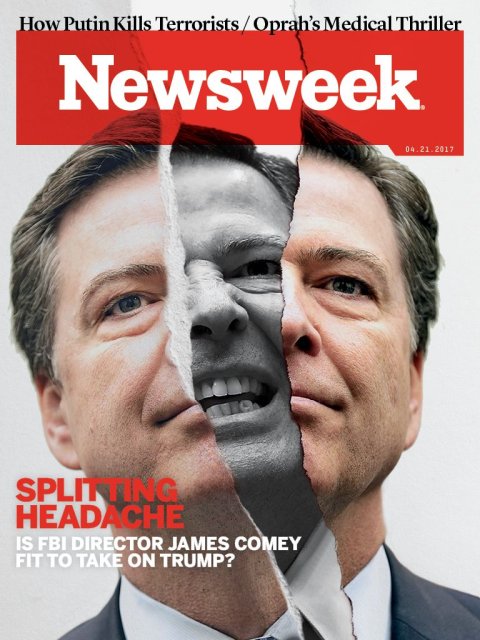
God (Awful) Complex
The criticism that Comey's self-righteousness clouds his judgment didn't start with the 2016 election. In 2013, even before Barack Obama nominated Comey as FBI director, a former George W. Bush White House official described him to Newsweek as having "a flair for the dramatic and a desire to be the moral savior of mankind." And that reputation has persisted; last September, Politico said Comey's critics believe that he "has displayed a worrying disregard for the rules and norms," and that "his 'streak of self-righteousness,' now essentially unchecked, has made him the most isolated, outspoken and openly defiant FBI director since Hoover." In March, a source close to Comey said in Vanity Fair that his decision to speak so fully about Clinton in July was due to his "megalomania." And a recent Harvard-Harris poll (conducted before the House Permanent Select Committee on Intelligence hearing on March 20, during which Comey confirmed the FBI investigation into possible collusion between Russia and Trump associates) found that only 17 percent of Americans surveyed viewed him favorably.
"Comey's about Comey. Comey's got this God complex where he has the most integrity in the world," a Democratic operative says. The operative adds that he believes Comey thought Clinton was going to win the election and feared he would look bad when it came out that he knew about these new emails, or that rogue FBI agents in the New York office would leak their existence to reporters. "He was looking out for Jim Comey first, Jim Comey second and Jim Comey third, and instead of doing the right thing, he did the convenient thing."
It's worth noting that the FBI employs about 35,000 people, and most of them are working on investigations unrelated to whether Trump staffers played footsie with Moscow. It's also worth noting that Comey has been excoriated for his pronouncements before. While speaking at the University of Chicago Law School in October 2015, he suggested that criticism of police had shackled cops and was driving up violent crime in some cities. Referring to the so-called Ferguson effect—though Comey didn't call it that—could be seen as another sop to his right-leaning agents. "In today's YouTube world, are officers reluctant to get out of their cars and do the work that controls violent crime?" he asked. "I don't know whether this explains it entirely, but I do have a strong sense that some part of the explanation is a chill wind blowing through American law enforcement over the last year. "
Civil rights groups and even some police departments protested, saying there was no data to back up his claims, and White House press secretary Josh Earnest, Attorney General Loretta Lynch and President Obama all quickly pushed back. "The available evidence at this point does not support the notion that law enforcement officers around the country are shying away from fulfilling their responsibilities," Earnest said. The president also subtly placed a shiv in Comey's chest. "We do have to stick with the facts," Obama told a police association in Chicago. "What we can't do is cherry-pick data or use anecdotal evidence to drive policy or to feed political agendas."
The White House was also unhappy with Comey's decision to push for a back door on encrypted electronic devices so his agents could see into phones belonging to terrorists or criminals, the Obama administration official tells Newsweek. "Encryption threatens to lead us all to a very, very dark place," Comey has said, and in August 2016 he called for the country to have an "adult conversation" about the dangers of encryption. An avalanche of experts say Comey is wrong on this issue. "I disagree with Jim Comey," General Michael Hayden, a former head of both the CIA and National Security Agency, said in January 2016. "I actually think end-to-end encryption is good for America."
J. Edgar Comey
When Comey finally disclosed in March that the FBI is investigating possible coordination between Trump associates and Russia during the presidential election—and has been since July—he got some pats on the back, as well as another pummeling. "Obviously, we're happy to hear that the FBI has been investigating the ties between the Trump campaign and the Kremlin," Jarad Geldner, a senior adviser for the Democratic Coalition Against Trump, says. "We're a little confused, though, [about] why he felt it necessary to comment so publicly on a witch hunt into one candidate's emails while the other campaign was colluding with a foreign power in an attempt to subvert our democracy. Comey still owes the American public an explanation."
The Wall Street Journal tore into Comey in early April with an opinion column titled "The Conflicts of J. Edgar Comey." The piece called the director "incredibly political" and blasted him for refusing to tell Congress whether he was doing anything to investigate the leak that toppled Trump's first national security adviser, Michael Flynn, who was caught lying about his contacts with the Russian ambassador. The column suggested Comey is reluctant to investigate because it's possible his staff members are among those who told newspaper reporters about Flynn's communications with the ambassador. "Leaking the names of private citizens under surveillance (with the express intent to cause harm) is among the grossest violations of civil liberties. It is what police states do," the column said.
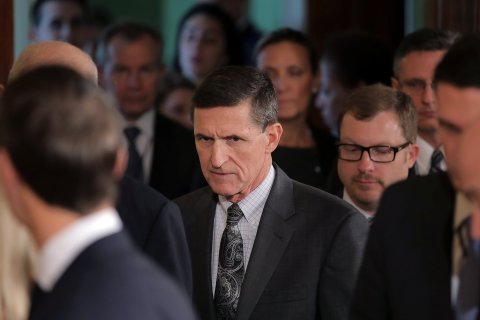
Some with ties to the federal government believe Comey's actions during both the Clinton and Trump investigations have forever tarnished him. "Comey was regarded as an accomplished and dedicated public servant," but the Clinton letter "really marred his reputation," a source with ties to the National Security Council under Obama tells Newsweek.
"His obituary, if it had been written a year ago, would have been one of incredible public service," says a source close to the FBI. "But now it will be marked—not stained, but marked—by being the centerpiece of an enormous political debacle."




